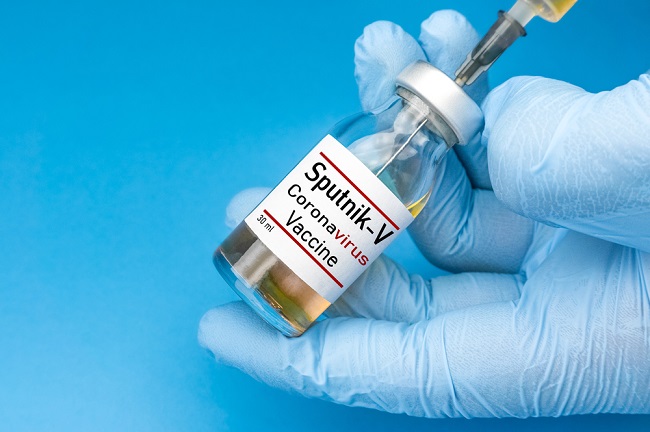Vitamin E deficiency is a condition when the body lacks vitamin E. Although rare, vitamin E deficiency can cause various health problems, ranging from impaired coordination of body movements to blindness.
Vitamin E is an important nutrient that the body needs to maintain the immune system and protect body cells from exposure to free radicals. This vitamin can be obtained naturally from foods, such as nuts, seeds, vegetable oils, green vegetables, and whole grains.

Vitamin E deficiency generally occurs due to a lack of eating foods containing vitamin E. However, vitamin E deficiency can also occur due to other conditions that cause impaired nutrient absorption (food malabsorption).
Causes and Risk Factors of Vitamin E Deficiency
As previously explained, vitamin E deficiency usually occurs due to insufficient intake of foods containing vitamin E or impaired absorption of nutrients. There are several factors that can make a person more at risk for vitamin E deficiency, namely:
- Are on a low-fat diet, because vitamin E is a vitamin that requires fat to dissolve in the body
- Have a condition that causes food malabsorption, such as cholestasis, inflammation of the pancreas, or cystic fibrosis
- Babies born prematurely
Although rare, vitamin E deficiency can also be caused by a rare genetic disorder that causes the sufferer's body to not be able to utilize vitamin E from food. This condition is generally experienced by children aged 5-15 years.
Symptoms of Vitamin E . Deficiency
Vitamin E deficiency rarely causes symptoms in adults, because adults tend to have large stores of vitamin E in adipose tissue. Conversely, vitamin E deficiency can have a greater impact if it occurs in infants or children.
Symptoms of vitamin E deficiency generally appear gradually as the condition worsens. These symptoms can include:
- Muscle weakness or pain
- Difficulty walking and balancing
- Difficulty regulating body movements, including speaking and swallowing
- Difficulty moving the eyeballs, especially up
- Visual disturbances, such as narrowing of the eye or night blindness
- Easy to feel tired
- Easily hurt
In premature babies, vitamin E deficiency can also increase the risk of hemolytic anemia, which is a condition of lack of blood caused by the breakdown of red blood cells. Not only that, premature babies can also experience brain bleeding and abnormal blood vessel growth in the eyes (retinopathy of prematurity).
When to go to the doctor
Check with your doctor if you experience the symptoms of vitamin E deficiency mentioned above, especially if you have a condition that can affect the absorption of vitamin E in the body.
In addition, if you have a baby who was born prematurely, consult a doctor immediately if he shows signs of weakness of movement.
Diagnosis of Vitamin E . Deficiency
The doctor will start the diagnosis by asking questions about the complaints and symptoms experienced, the patient's and family's medical history, and the patient's lifestyle. The doctor will also perform an overall physical examination, especially the function of the nerves, muscles, and eyes.
For a more accurate diagnosis, the doctor will perform a blood test to measure the level of vitamin E in the blood. Blood tests may also be done to detect hemolytic anemia that can result from vitamin E deficiency.
Adults are considered to have vitamin E deficiency if the level of vitamin E in their body is less than 5 mcg/mL. While in children, vitamin E levels are usually more difficult to detect.
In addition to the above examination, the doctor can also perform additional examinations to detect other conditions that may be the cause of vitamin E deficiency.
Vitamin E Deficiency Treatment
Generally, treatment for vitamin E deficiency is by giving vitamin E supplements. Vitamin E supplements can be given in the form of capsules, solutions, or multivitamin tablets.
The dose given is generally in the range of 15-25 mg/kg body weight (BB), once a day. However, in certain cases, the doctor may give a higher dose.
In patients with biliary disorders, vitamin E supplements are given by infusion. This is because the patient's body is unable to absorb the vitamin E supplements taken orally.
Complications of Vitamin E Deficiency
If left untreated, vitamin E deficiency can get worse and lead to complications such as:
- Recurrent infection
- Blindness
- Heart rhythm disturbances
- Dementia
Prevention of Vitamin E Deficiency
The best way to prevent vitamin E deficiency is to make sure your body gets enough daily intake of vitamin E. The following are the levels of vitamin E needed by the body based on age:
- Infants 0–6 months: 4 mg/day
- Infants 7–12 months of age: 5 mg/day
- Children 1–3 years: 6 mg/day
- Children 4–8 years: 7 mg/day
- Children 9–13 years: 11 mg/day
- Adolescents and adults: 15 mg/day
- Pregnant women: 15 mg/day
- Breastfeeding mothers: 19 mg/day
For babies aged 0-6 months who are not allowed to eat solid food, the need for vitamin E can be fulfilled from breast milk or formula milk. However, after weaning, the baby's vitamin E needs need to be met from food. Foods that can be a source of vitamin E include:
- Nuts and seeds
- Green vegetable
- Vegetable oil
- Egg
- Kiwi
- Mango
Apart from food, vitamin E intake can also be obtained from supplements. Vitamin E supplements can be given to premature babies to prevent vitamin E deficiency, as well as to children and adults who feel that their intake of vitamin E from food is not enough.
Keep in mind, the consumption of vitamin E supplements should be consulted with a doctor first. The reason is, if this supplement is not consumed according to the rules and the right dosage, various side effects can arise. One of them is the increased risk of bleeding.









